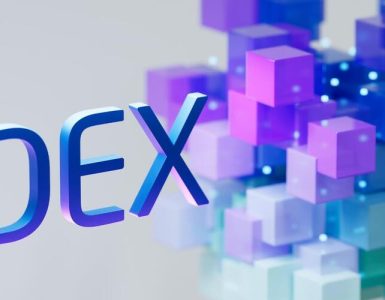In recent years, Decentralized Finance (DeFi) has emerged as a game-changing innovation in the world of finance. The DeFi ecosystem is built on a blockchain-based infrastructure that allows users to access financial services without the need for intermediaries such as banks or other traditional financial institutions. One of the key components of the DeFi ecosystem is the Decentralized Market Maker (DMM) protocol. This article explores the role of DMMs in DeFi and how they are shaping the future of finance.
What are Decentralized Market Makers (DMMs)?
Decentralized Market Makers are algorithms that enable the creation of automated markets for trading digital assets without the need for a centralized exchange. DMMs are based on the concept of Automated Market Makers (AMMs), which were first introduced by Vitalik Buterin and others in 2014. DMMs operate by setting up smart contracts that allow users to trade tokens by providing liquidity to a pool of assets. The DMM algorithm then calculates the price of the assets based on the demand and supply of tokens in the pool.
How do DMMs work?
DMMs work by setting up liquidity pools that allow users to deposit their assets into a smart contract. In exchange for providing liquidity, users receive liquidity provider (LP) tokens that represent their share of the pool. These LP tokens can then be used to earn a share of the trading fees generated by the DMM.
The DMM algorithm then calculates the price of each token based on the ratio of assets in the pool. As the demand for a particular token increases, the DMM algorithm adjusts the price of the token upwards. Conversely, if the demand for a token decreases, the DMM algorithm adjusts the price downwards. This mechanism ensures that the price of the token remains stable, even in volatile market conditions.
The Advantages of DMMs
DMMs offer several advantages over traditional centralized exchanges. Some of these advantages include:
Decentralization
DMMs are fully decentralized, meaning that they do not rely on any central authority or intermediary. This eliminates the need for users to trust a centralized exchange with their assets.
Lower Fees
DMMs charge lower fees than traditional centralized exchanges. This is because DMMs are automated and do not require a large team of employees to operate.
Liquidity
DMMs offer greater liquidity than traditional centralized exchanges. This is because the liquidity pools created by DMMs allow users to trade assets without the need for a centralized order book.
Accessibility
DMMs are accessible to anyone with an internet connection, regardless of their location or financial status.
Use Cases for DMMs
DMMs have several use cases in the DeFi ecosystem. Some of these use cases include:
Stablecoins
DMMs are commonly used to create stablecoin trading pairs. Stablecoins are digital assets that are pegged to a fiat currency such as the US dollar. DMMs enable the creation of stablecoin liquidity pools that allow users to trade stablecoins with other digital assets.
Token Swaps
DMMs can also be used for token swaps. Token swaps involve the exchange of one digital asset for another. DMMs enable users to swap tokens without the need for a centralized exchange.
Liquidity Provision
DMMs can be used to provide liquidity to decentralized lending protocols such as Aave or Compound. By providing liquidity to these protocols, users can earn a share of the interest generated by the lending pool.
The Future of DMMs
DMMs are still a relatively new technology, but they have already had a significant impact on the DeFi ecosystem. Moving forward, DMMs are expected to continue to play a critical role in the growth and development of DeFi. One area where DMMs could have a significant impact is in the creation of new financial products. For example, DMMs could be used to create decentralized options contracts, which would enable users to hedge against price fluctuations in digital assets.
Furthermore, as the DeFi ecosystem continues to grow, DMMs are likely to become even more important in providing liquidity and price stability. This could lead to increased adoption of DeFi products and services, as users become more confident in the reliability and security of DMMs.
However, there are also some potential risks associated with DMMs. One concern is that the algorithms used by DMMs could be manipulated by bad actors to drive prices up or down. Additionally, DMMs could be vulnerable to so-called “flash crashes,” where sudden changes in market conditions could cause the price of an asset to drop rapidly.
Despite these potential risks, the benefits of DMMs appear to outweigh the risks, making them an essential component of the DeFi ecosystem.
Conclusion
Decentralized Market Makers are a critical component of the DeFi ecosystem, providing liquidity and price stability to the digital asset markets. DMMs offer several advantages over traditional centralized exchanges, including decentralization, lower fees, and greater accessibility.
As the DeFi ecosystem continues to grow, DMMs are expected to play an increasingly important role in providing liquidity and driving innovation in the financial sector. While there are some potential risks associated with DMMs, the benefits they offer make them an essential part of the future of finance.
FAQs
Q: What is a DMM?
A: A Decentralized Market Maker (DMM) is a smart contract that facilitates the exchange of digital assets in a decentralized manner.
Q: How do DMMs facilitate liquidity provision in DeFi?
A: DMMs incentivize liquidity providers to supply assets to the liquidity pool by allowing them to earn a portion of the trading fees generated by the DEX.
Q: What are some examples of DMMs in DeFi?
A: Some examples of DMMs in DeFi include Uniswap, Balancer, and Curve Finance.
Q: What are some advantages of DMMs in DeFi?
A: DMMs offer several advantages in DeFi, including decentralization, accessibility, efficiency, and transparency.
Q: What are some challenges faced by DMMs in DeFi?
A: Some challenges faced by DMMs in DeFi include impermanent loss, high gas fees, and limited asset support.
Q: What is the future of DMMs in DeFi?
A: The future of DMMs in DeFi is promising, and we can expect to see further developments and improvements in their functionality, including integration with layer-2 solutions and cross-chain compatibility.





